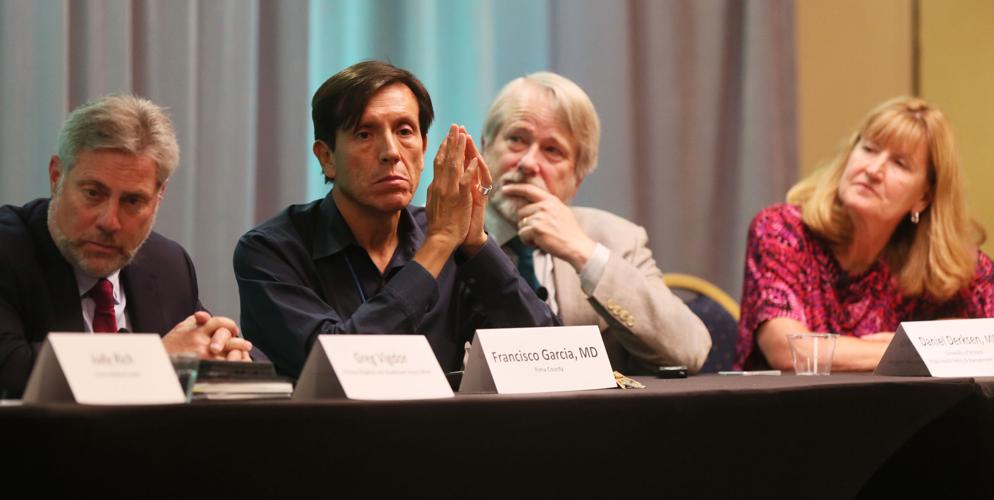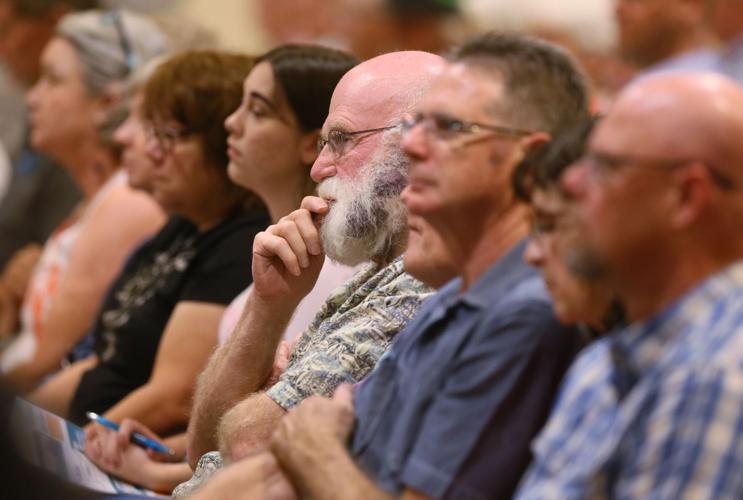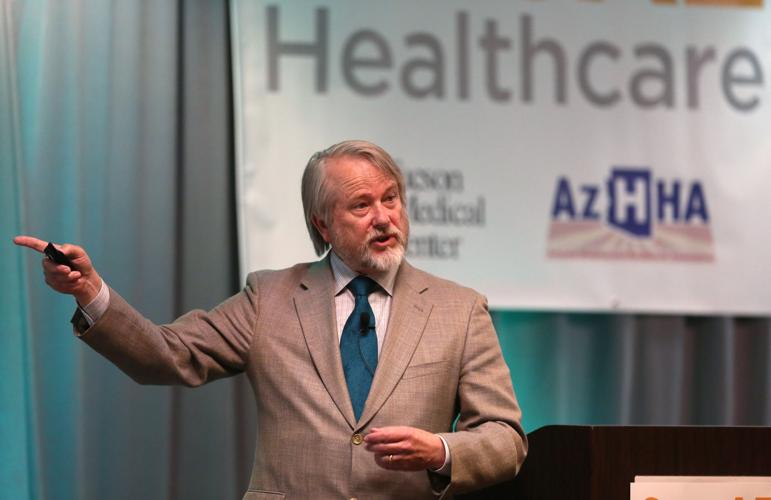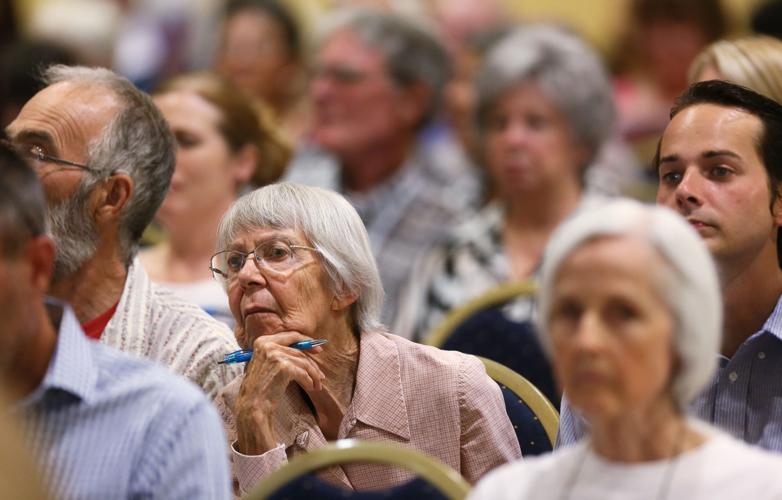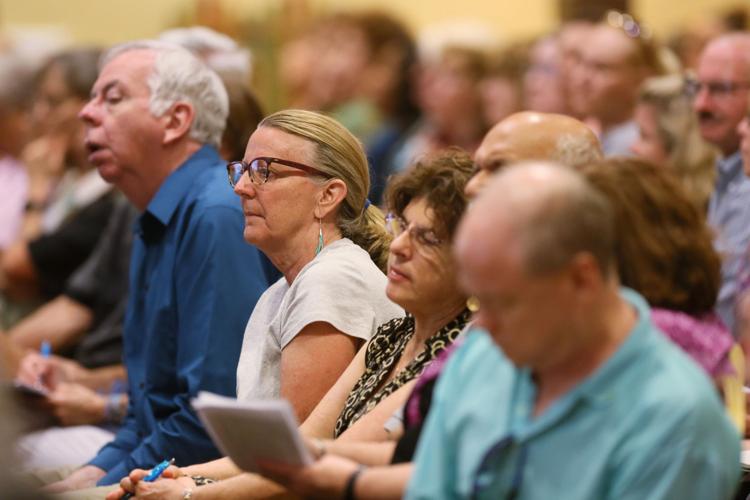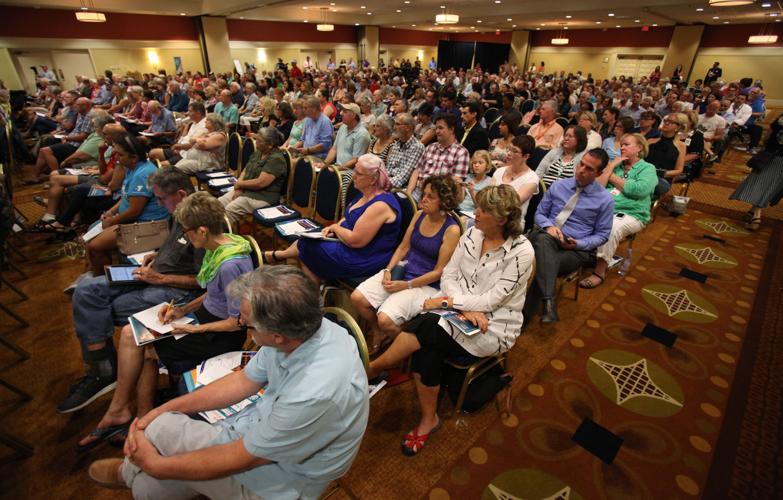The turnout at Tucson Medical Center’s forum about federal health reform Monday night underscored local concern about the issue — there were 700 people, twice what organizers expected.
A livestream of the event on Facebook drew 1,900, organizers added.
“I’m floored,” TMC spokesman Jim Marten said of the attendance numbers. “With the heat and everything. ... We had to keep adding chairs.”
Here are five takeaways from the event:
1. The sentiment at the forum was against both the Senate and House bills.
Judy Rich, CEO of TMC, made it clear at the beginning of the program that she thinks the American Health Care Act (House bill) and the Better Care Reconciliation Act (Senate bill) should be set aside, and that efforts should be made to move to a bipartisan solution that will be better for communities.
The audience members were also predominantly either concerned about both bills or had made up their minds against them. A group greeted attendees with information about a single-payer “Medicare for All” alternative. One woman held a sign that said “Healthcare Not Wealthcare.”
2. The opposition was not solely partisan.
Dr. Dan Derksen, a health-policy expert and professor at the University of Arizona’s Mel & Enid Zuckerman College of Public Health, pointed out impacts that both bills could have, particularly on Arizona’s rural and low-income populations. He said they would be devastating and, after the event, called the proposals “too vindictive.”
But he also disclosed to audience members that he is a lifelong registered Republican.
3. The Senate bill is not too different from the House bill.
Under both bills, Medicaid as we know it could end. And congressional budget reports on both bills predict that under their provisions, more Americans will be uninsured.
Sharp cuts in federal funding could double the number of uninsured in Arizona to about 1.2 million people, Derksen said. When people are uninsured, it shifts costs to individuals, families and health providers, and also worsens health outcomes, he said.
The Affordable Care Act passed under President Obama was “fundamental landmark” legislation in many ways, said Dr. Francisco Garcia, who is assistant county administrator for health services and chief medical officer for Pima County. “To me it was like the Berlin Wall coming down and apartheid ending,” he said.
“Access to care and access to insurance doesn’t necessarily mean people are healthier and getting better, but it is a fundamental requisite, a kind of component of health and wellbeing.”
But changes to the Medicaid program will change everything, Garcia and other panelists said. The legislation would repeal the Social Security Act provision that the federal government cover at least 50 percent of a state Medicaid program and would create a per-person cap, vulnerable to yearly cuts. All of that is bad for Arizona, Derksen and others said.
4. Arizona’s economy could be affected.
“Health care is a big part of Arizona’s economy,” said Greg Vigdor, CEO of the Arizona Hospital and Healthcare Association. “This will do great damage.”
Panelists estimated upwards of 20,000 health-care jobs could be lost due to the financial impact of the proposed federal changes.
5. Some audience members had moral concerns.
TMC’s Rich took written questions from the audience. When one asked about the possibility of a single-payer, universal system in the U.S., the audience cheered.
Audience member and retired pastor David Wilkinson said that from his faith-based perspective, the Senate and House bills are immoral because they don’t take care of the poor. He said health care should be a right for all Americans, regardless of their income.
“The most vital thing I learned tonight is that we’re in crisis,” Wilkinson said. “There’s very little hope for the poor if either of these bills passes.”


